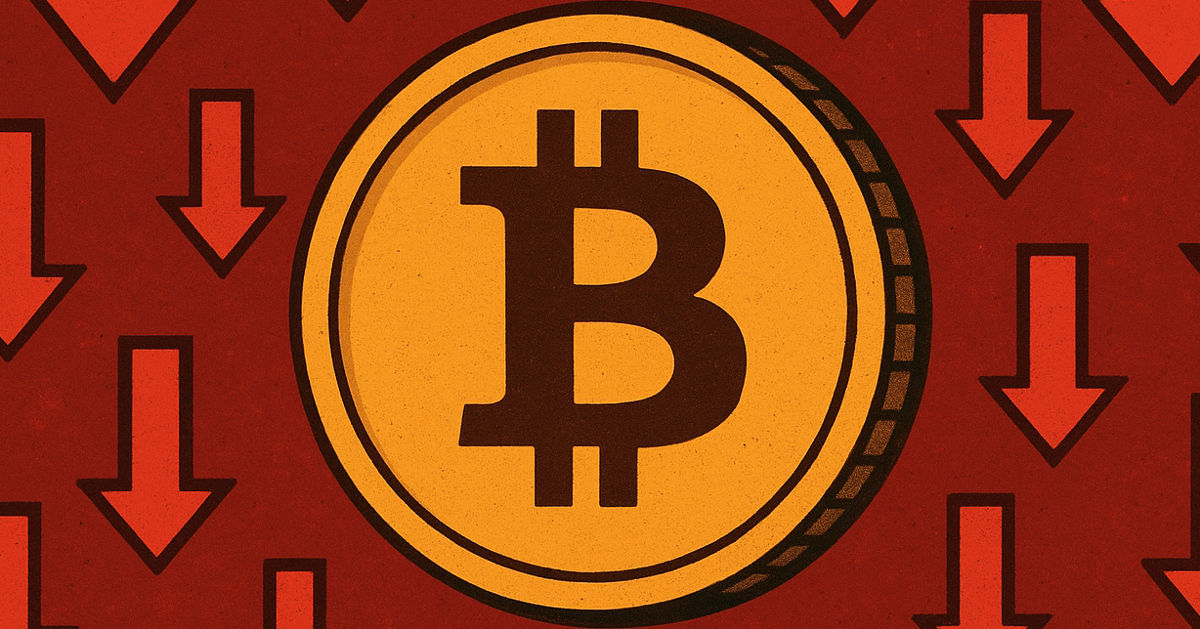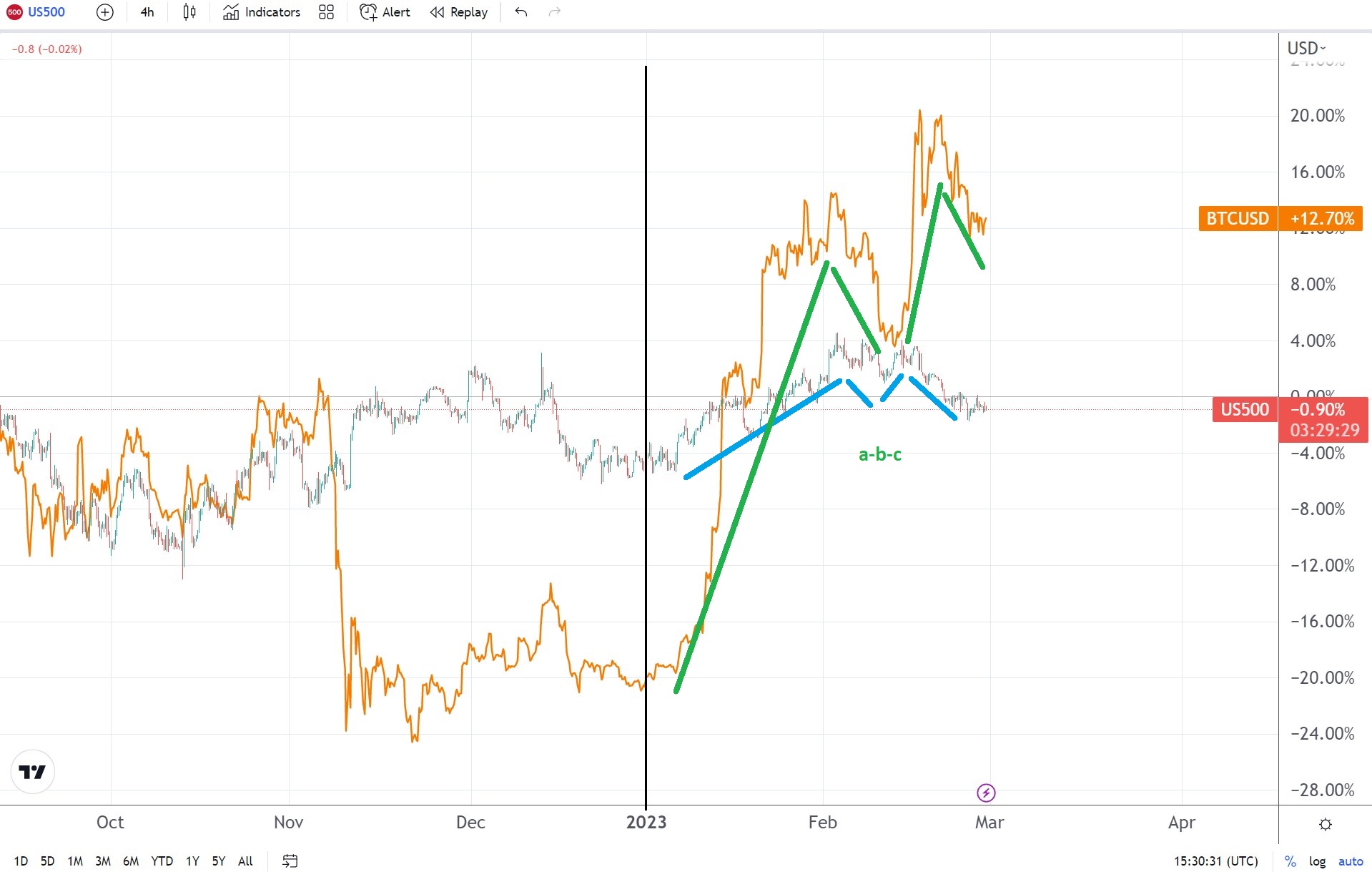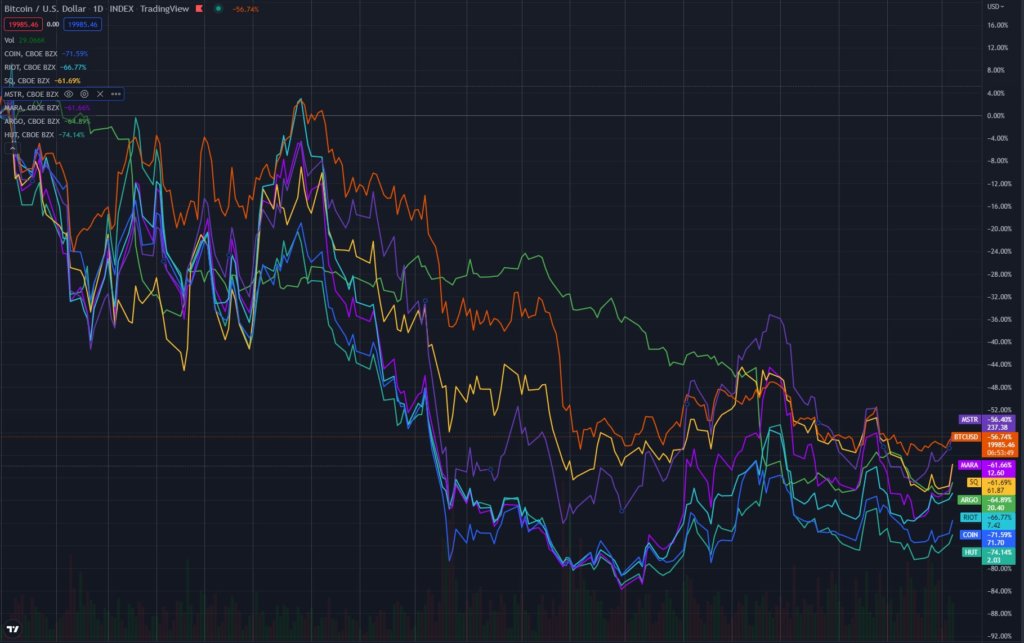2019-5-16 19:41 |
As stock markets plunged recently, Bitcoin continued ever-upwards on its strongest run since the beginning of last great rally of 2017. Is there any relationship between these two events?
Wall Street hates uncertainty. When US-China trade talks unraveled the other day, stocks plummeted, with fears of an economic tsunami that would crash devastating waves into market coasts worldwide. It was the steepest decline on the S&P 500 since January, and continued a fall of 3.8% for the month of May.
In the much smaller – and therefore much more volatile – cryptocurrency realm, a 3.8% drop over the course of a month is laughably small; of little consequence to grizzled crypto trading veterans.
But at the same time that the stock market was gripped with fears over trade disputes, Bitcoin and the larger crypto market was climbing exuberantly, with a number of narratives keeping the good feelings flowing.
This relationship, or lack of relationship more accurately, is referred to as non-correlation. In exactly opposing situations — like when stocks crashed and Bitcoin pumped at the same time — this relationship is termed inverse correlation.
Inverse Correlation Is ImportantHolding funds in assets that are not correlated, or even better, are inversely correlated, can be extremely beneficial to a trader’s bottom line. A wise trader can avoid the worst consequences of a situation by hedging against it, or can even escape altogether from a falling asset into one that is surging.
In times of economic uncertainty, investors tend to move toward safer investments and harder forms of money, like gold and silver. Gold is often considered the safest, having relatively low volatility and maintaining value no matter what seems to be happening to the economy in general. Gold has maintained a value ranging from around $1100 an ounce up to a little more than $1400 for more than 5 years now, proving to be a reliable store of value.
Clearly, gold is a great place to store away some value for tough times, or for future savings. Still, it hasn’t really made a significant profit for the average holder, instead offering safety from instability in exchange for modest gains.
Other commodities do not hold anywhere near the same kind of steadiness over the years. Oil, for example, fell to prices below $30 USD just a few years ago, and is now returning to more profitable prices in the $60 range.
Of course, oil’s value is complicated by numerous conflicting political bodies, oil embargoes, organizations that control the production of oil like OPEC, and ongoing wars. Still, as stocks took a turn for the worse in recent days, oil followed along in correlation with the broader stock market.
While the stock markets were being pummeled, Bitcoin rose with enthusiasm. It may be tempting to look at the two incidents and assume they’re related somehow. It’s only human nature, after all, to assume a narrative must exist to explain the two diverging stories.
But Don’t Count On Bitcoin For Inverse CorrelationHowever the objective truth appears to be that the two markets are not correlated – at least, not with any sort of observable consistency. Although Bitcoin may correlate (or inversely correlate) with stocks for a period, it can just as easily shift into non-correlation, without any apparent causal relationship between the movements.
Of course, non-correlation does not guarantee a Bitcoin hodler massive gains during stock market crashes or oil gluts, but it does offer a hedge — an asset one can hold that behaves separately and distinctly from other markets.
This is part of what makes Bitcoin an extremely attractive investment for those who understand it. And it’s especially the case when one considers the peril that may face currencies such as the USD in the event of a deepening trade war with China, for example. If USD falls substantially in status, Bitcoin may gain relative value in comparison, regardless of the variations in other assets and resources.
Or it may not. That’s the point of non-correlation, and the reason for diversified portfolios.
The phenomenon is clearly too early to discern with confidence. The immaturity of the cryptocurrency market means that micro-economic factors and news often drive volatility within the ecosystem, rather than macro factors externally.
When Bitcoin becomes a more reliable store-of-value, we may expect this to change. And as more experienced investors take over the determination of the market direction, teenage Bitcoin is likely to lose a little of its irrational exuberance, and join the world of the grown-ups.
But for now, amidst the din of economic uncertainty, trade disputes, and markets rising and falling, Bitcoin does its own thing. There isn’t necessarily any explainable relationship between the dramatic movements in traditional markets and the volatility of crypto markets yet.
In time, there will be. And then we’ll have to find something new to play with.
The post Oil, Gold, Stocks: Bitcoin Simply Doesn’t Hang With The Working Stiffs appeared first on Crypto Briefing.
origin »Bitcoin price in Telegram @btc_price_every_hour
Bitcoin (BTC) на Currencies.ru
|
|

















